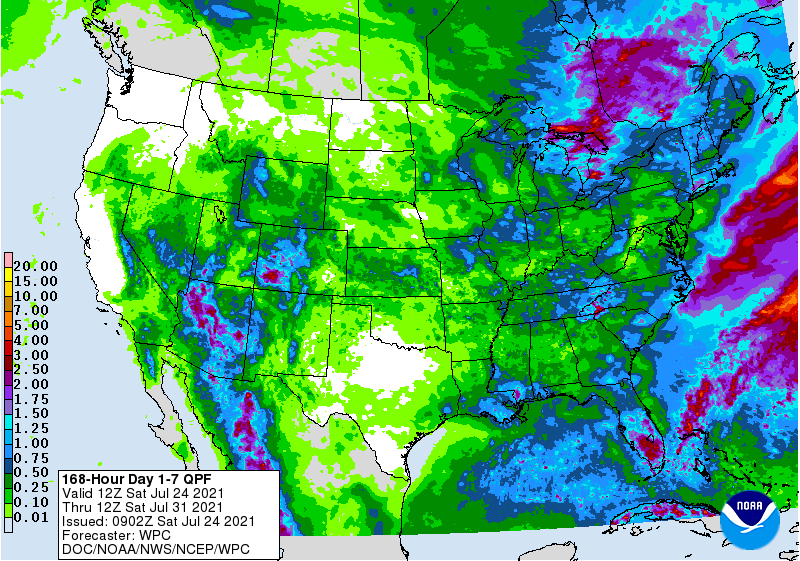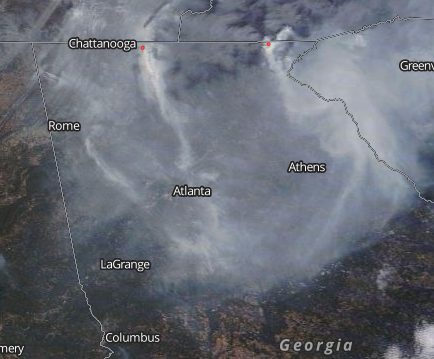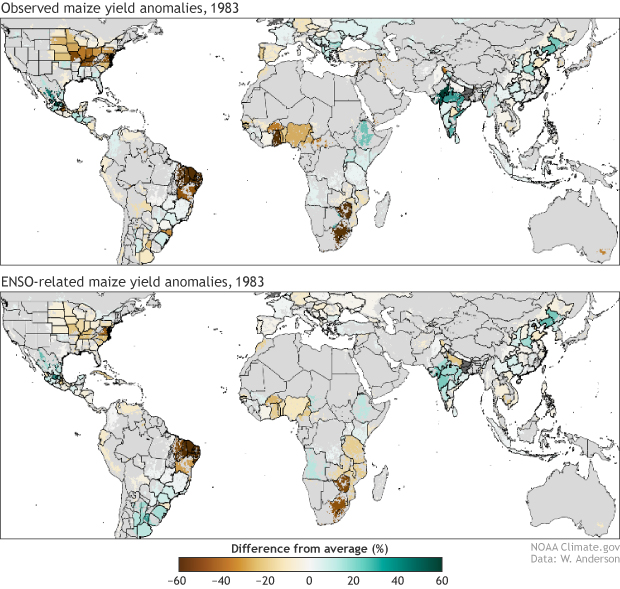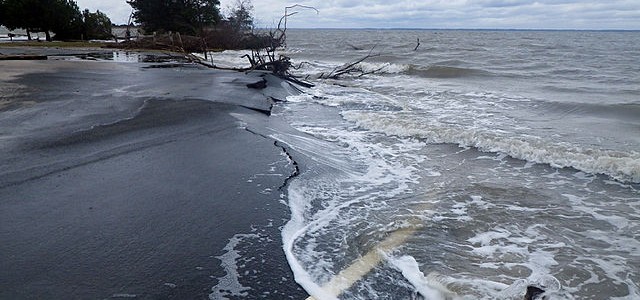-

The latest 7-day QPF map shows that most parts of the region are likely to experience less than an inch of rain this week, with the most likely times midweek but scattered chances throughout the period. The wildcard is Investigation 90, an area of potential tropical development now located east of Florida that has a…
Posted in: Climate outlooks -

It’s hard to think about forest fires in the Southeast this year with all the rain we have had, but it was not that many years ago that fires were a terrible reality. I remember walking out of my office in northeast GA smelling the smoke in 2016 from the fires in the mountains to…
-

In this blog I tend to focus on the relationship between the phase of ENSO (El Nino or La Nina or neutral) and what climate conditions are likely to happen here in the Southeast as well as how those conditions will affect our crops. But ENSO actually affects weather across the whole globe, so if…
-

The latest Drought Monitor, released this morning, shows, that most areas of abnormally dry (D0) conditions remain the same, but that a small area of moderate (D1) drought was added to central Virginia this week. There were no changes to the Puerto Rico map, either. With relatively light amounts of rain expected in the next…
Posted in: Drought -

The Packer reported this week that one of the consequences of the dramatic high temperatures in the Pacific Northwest is the impact on onions. Demand for onions is increasing as more restaurants open up, but the heat has caused problems for onions and stressed them. One result is that onions are maturing about a week…
-

I am getting a lot of calls about the day after day of rain. It’s not just the amounts, which are sometimes large but often just a tenth of an inch or so. It is also the frequency, which is enough to keep farmers from being able to apply fungicides, growth inhibitors, and other treatments…
-

Coastal areas of the Southeast as well as most of the rest of the world have seen increased flooding in recent years due to slowly rising sea levels, which are driven by a combination of warmer oceans and melting land ice. While a lot of this flooding has been more of a nuisance than dangerous…